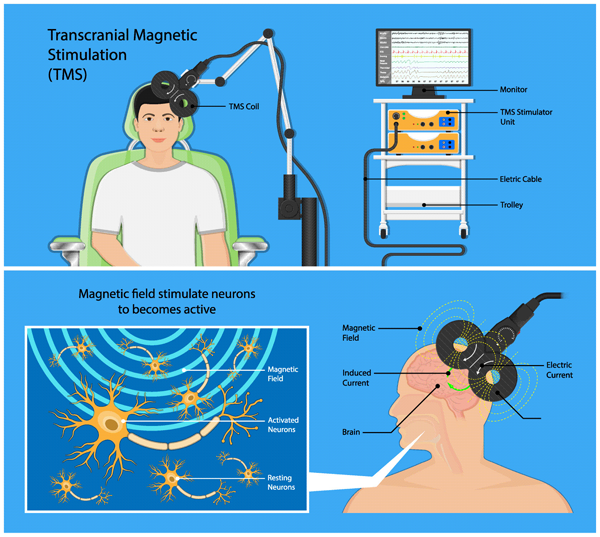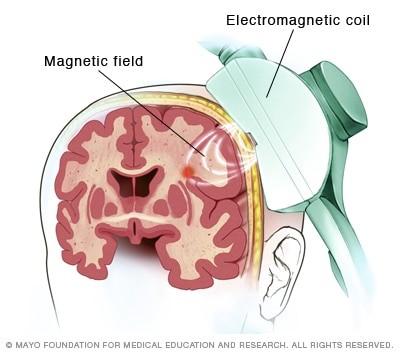Transcranial magnetic stimulation tms is a noninvasive procedure that uses magnetic fields to stimulate nerve cells in the brain to improve symptoms of depression.
Does transcranial magnetic stimulation work for anxiety.
Transcranial magnetic stimulation for anxiety anxiety is a condition that has many forms including being aggravated by various types of depression.
Transcranial magnetic stimulation known as tms or rtms may be a safe effective and noninvasive option for people who have depression that has not improved with medications.
Tms is typically used when other depression treatments haven t been effective.
The current comes from the magnetic field created by an electromagnetic coil that delivers pulses through the scalp.
First used in 1985 tms therapy has been used by researchers around the world to help understand the function of different parts of the brain.
As each magnetic pulse passes through the skull and into the brain this induces brief activity of brain cells underlying the.
Rtms repetitive transcranial magnetic stimulation has been shown to produce changes in neuronal activity in regions of the brain implicated in mood regulation such as the prefrontal cortex.
Tms therapy involves the use of very short pulses of magnetic energy to stimulate nerve cells in the brain.
Tms creates a magnetic field to induce a small electric current in a specific part of the brain.









